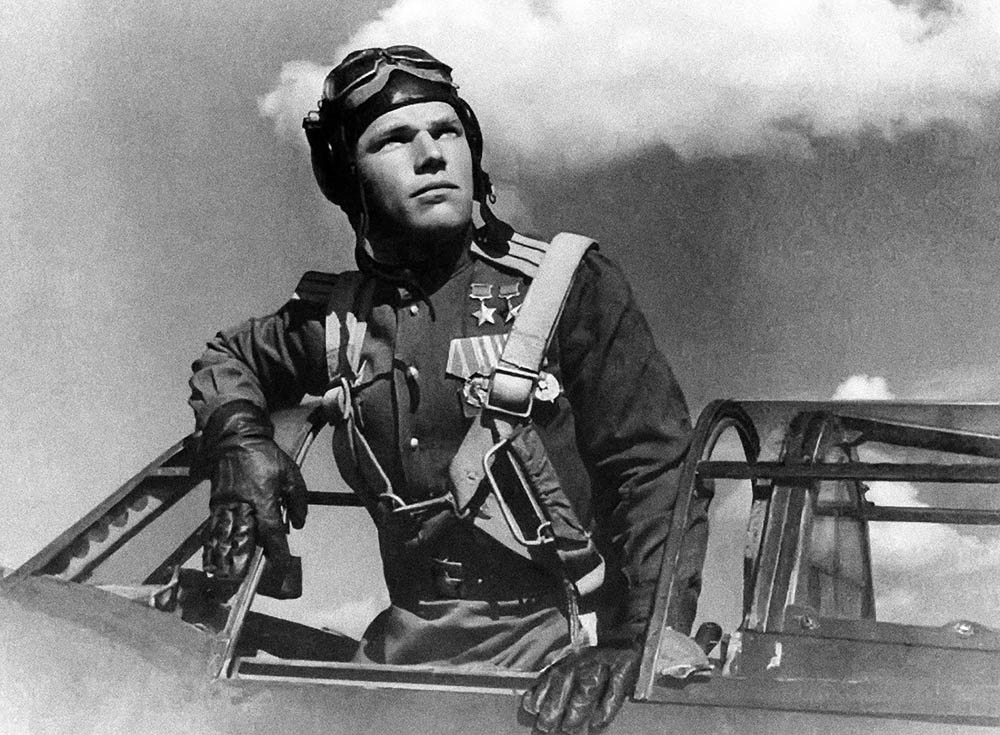|
Zhukovsky Air Force Engineering Academy
Zhukovsky Air Force Engineering Academy () – is a higher military educational institution for training and retraining of engineers for the Russian Air Force. The academy trains specialists – engineers, research engineers in the following specialties: * Technical maintenance of aircraft and engines * Robotic aircraft armament system * Electronics and automation of physical systems * Technical maintenance of aircraft electrical systems and flight control and navigation systems * Software of computers and automated systems * Metrology and metrological support * Technical operation of the transport of radio equipment * Electronic warfare * The study of natural resources by means of aerospace Organizational structure The academy has the main campus in Moscow, and training centers in Monino, Noginsk and Kashira. Faculties and schools * No. 1 – aircraft * No. 2 – aircraft armament * No. 3 – aircraft equipment * No. 4 – aviation electronic equipment * No. 5 – traini ... [...More Info...] [...Related Items...] OR: [Wikipedia] [Google] [Baidu] |
Military Academies In Russia
Russia has a number of military academies of different specialties. This article primarily lists institutions of the Armed Forces of the Russian Federation rather than those of the Soviet Armed Forces. Russian institutions designated as an "academy" are post-graduate professional military schools for experienced commissioned officers who graduated from higher military school or military training center within civilian university and have some years of active duty service after graduation. Thus, military academies are educational institutions conducting the advance training career commissioned officer programmes. These programmes are named magistratura (russian: магистратура) and take 2 years. Military academies are the second (operational-tactical) level of officer training. Their graduates can be appointed to battalion/regiment/brigade commander or equivalent positions. At the moment, some military academies also conduct programmes for the training of warrant off ... [...More Info...] [...Related Items...] OR: [Wikipedia] [Google] [Baidu] |
Ivan Kozhedub
Ivan Nikitovich Kozhedub (Russian: Иван Hикитович Кожедуб; Ukrainian: Іван Микитович Кожедуб; 8 June 1920 – 8 August 1991) was a Soviet World War II fighter ace. Universally credited with over 60 solo victories, he is considered to be the highest scoring Soviet and Allied fighter pilot of World War II. He is one of the few pilots to have shot down a Messerschmitt Me 262 jet, and the first Soviet pilot to have done so. He was made a Hero of the Soviet Union on three occasions (4 February 1944, 19 August 1944, and 18 August 1945). After World War II, he remained in the military and went on to command the 324th Fighter Aviation Division during Soviet operations in the Korean War. Early life Kozhedub was born on 8 June 1920 to a Ukrainian family in the village of Obrazhiivka, in Chernigov Governorate, located within what is now Shostka Raion of Ukraine's Sumy Oblast. After graduating from his seventh grade of school in his hometown in 1934 ... [...More Info...] [...Related Items...] OR: [Wikipedia] [Google] [Baidu] |
Jügderdemidiin Gürragchaa
Jügderdemidiin Gürragchaa ( mn, Жүгдэрдэмидийн Гүррагчаа; russian: Жугдэрдэмидийн Гуррагча, , born 5 December 1947) is a Mongolian cosmonaut and military leader. He was the first Mongolian and second Asian to go into space. He also was Mongolia's Defense Minister from 2000 to 2004. Early life and spaceflight Born in Gurvanbulag, Bulgan, Gürragchaa studied in Ulaanbaatar to become an aerospace engineer. In 1966, he joined the Mongolian Air Force. He graduated from the Zhukovsky Air Force Engineering Academy in 1978. He was selected as part of the eighth Intercosmos program on 1 March 1978, at time he was in the rank of Major General. His backup was Maidarjavyn Ganzorig. Gürragchaa, along with Soviet cosmonaut Vladimir Dzhanibekov, departed from Baikonur Cosmodrome on 22 March 1981. They docked with Salyut 6. While in orbit, Dzhanibekov and Gürragchaa carried out experiments on Earth science. After 124 orbits and 7 days, 20 hou ... [...More Info...] [...Related Items...] OR: [Wikipedia] [Google] [Baidu] |
Irina Grekova
Elena Sergeevna Ventsel (russian: Еле́на Серге́евна Ве́нтцель; maiden name Dolgintseva, 21 March 1907, Reval — 15 April 2002, Moscow), known by the pen name Irina Grekova (often shortened to I. Grekova, this pen name is a pun on y in mathematics, which sounds in russian as "igrek"), was a Soviet writer and mathematician. She held a Ph.D. in mathematics, and wrote several influential textbooks on probability theory, game theory, and operations research.Cathy Porter, introduction to 'The Ship of Widows', Irina Grekova, 1981, English translation by Cathy Porter 1985, Virago Biography Her father taught mathematics and her mother taught literature. Believing that higher mathematics was actually simpler than arithmetic, he began giving her lessons when she was only seven or eight. In 1923, when she was sixteen, she entered Petrograd University (now Saint Petersburg State University), where she studied with Boris Delaunay, Ivan Vinogradov, Gury Kolosov and ... [...More Info...] [...Related Items...] OR: [Wikipedia] [Google] [Baidu] |
Vladimir Kovalyonok
Vladimir Vasiliyevich Kovalyonok ( be, Уладзі́мір Васі́льевіч Кавалёнак; russian: Влади́мир Васи́льевич Ковалёнок; born 3 March 1942 in Beloye, Minsk Oblast, Belorussian SSR) is a retired Soviet cosmonaut. He entered the Soviet space programme on July 5, 1967, and was commander of three missions. Together with Aleksandr Ivanchenkov he flew the long-endurance mission EO-2 which set a new record of 139 days in space. He retired from the cosmonaut team on June 23, 1984. From 1990 to 1992 he was a Director of the 30th Central Scientific Research Institute, Ministry of Defence (Russia). Missions * Soyuz 25 * Soyuz 29/Soyuz 31 * Soyuz T-4 * Salyut 6 Honours and awards * Hero of the Soviet Union, twice (2 November 1978 and 26 May 1981) * Pilot-Cosmonaut of the USSR * Order of Merit for the Fatherland, 3rd class (16 May 1996) * Order of Military Merit (2000) * Three Orders of Lenin (15 November 1977, 2 Nove ... [...More Info...] [...Related Items...] OR: [Wikipedia] [Google] [Baidu] |

